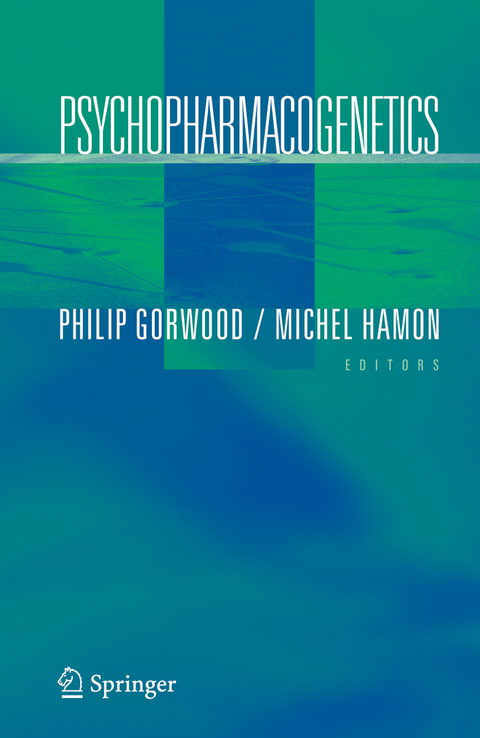
Psychopharmacogenetics
Springer-Verlag New York Inc.
978-0-387-30793-0 (ISBN)
Adult and child psychiatric disorders, including mood disorders, psychosis, substance abuse, and dementia, represent a large source of disability in the general population. The urgency to develop new treatments that may have better efficacy and tolerance is explained by the fact that none of the treatments currently available can be considered completely satisfying. Several reasons underlie this relative failure, such as, for example, (1) lack of knowledge of the mechanisms involved, (2) heterogeneity of most psychiatric disorders (that have good inter-rater validity but weak relationship with specific neurobiological mechanisms), (3) variable tolerance that leads to poor compliance, and (4) insufficient prediction for a specific treated patient of the efficacy, side effects, and outcome associated with the prescribed treatments.
Furthermore, from an economical point of view, psychiatric disorders are now the most expensive disorders to treat. The costs associated with mental illnesses, which constitute a significant percentage of the total direct health care costs, are currently estimated above $100 billion (USD), representing $1,605 per person per year in the U.S. (9% of the gross national product).
Prediction of efficacy, prevention of major side effects, and selection of the most appropriate treatment should thus have major medical and economical impacts. The pharmacogenetics devoted to psychotropic drugs (psychopharmacogenetics) will help to further develop these points.
The psychopharmacogenetic field represents an important area of research that is based on various specialties including clinical psychiatry, pharmacology, neurobiology and genetics. However, data issued from such relevant investigations are frequently, for clinicians as for scientists, rather obscure and/or scattered.
In this book, the basic and advanced knowledge on psychiatric disorders will be provided for non-clinicians: What is schizophrenia? What are therisk factors? What are the core symptoms? How is it treated? What are the efficacy and side effects of the available treatments and their mechanisms? Are there already some psychopharmacogenetic data useful in clinical practice?
Foreword.- Introduction on Psychopharmacogenetics.- Genetics of Anxiety and Related Disorders: Implications for Pharmacogenetics.- Major Depressive Disorders: Depressive Disorders.- Pharmacogenetics of Biopolar Disorders.- Psychopharmacogenetics of Schizophrenia and Psychosis.- Alzheimer’s Disease and Other Dementias.- Pharmacogenetics of Alcohol-Dependence.- Eating Disorders and Obesity.- Neuropsychlpharmacogenetics: Stimulating Rationale Therapy in Attention-Deficit/Hyperactivity Disorder (ADHD).- Autism and Autistic Disorders.- Genetics of Monoamine Metabolizing Enzymes: Psychopharmacogenetics.- Transduction Mechanisms: G Proteins.- Monoamine Transporters.- Dopamine Receptors: Structure, Function and Implication in Psychiatric Disorders.- The Neurobiology of GABA Receptors.- Cytochromes P450.- Sexual Dysfunction: Neurobiological, Pharmacological, and Genetic Consideration.- Drug-Induced Movement Disorders.- Cardiac Side Effects of Psychotropic Medication: Focus on QTe Prolongation and TdP.- Glossary.
| Zusatzinfo | 58 Illustrations, black and white; XVI, 566 p. 58 illus. |
|---|---|
| Verlagsort | New York, NY |
| Sprache | englisch |
| Maße | 155 x 235 mm |
| Themenwelt | Medizin / Pharmazie ► Medizinische Fachgebiete ► Pharmakologie / Pharmakotherapie |
| Medizin / Pharmazie ► Medizinische Fachgebiete ► Psychiatrie / Psychotherapie | |
| Medizin / Pharmazie ► Pharmazie | |
| Naturwissenschaften ► Biologie ► Humanbiologie | |
| ISBN-10 | 0-387-30793-1 / 0387307931 |
| ISBN-13 | 978-0-387-30793-0 / 9780387307930 |
| Zustand | Neuware |
| Haben Sie eine Frage zum Produkt? |
aus dem Bereich


